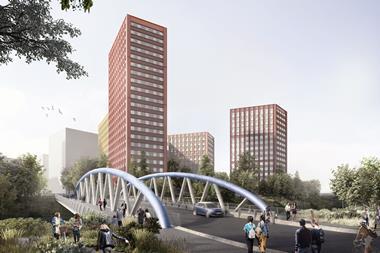To start, a diatribe on the dogma endangering the Planning Bill proposed in the Queen’s Speech last week.

Forcing local planning authorities to zone sufficient land to meet an arbitrary target of 300,000 new homes a year amounts to self-harm. The ONS suggests 172,000 is sufficient to keep pace with household formations until 2040.
More to the point, homes are built by developers aiming at financial, not political, targets. Then there is the muscle-flexing proposal that newly zoned land can be built on without developers being forced to jump further planning hurdles — an idea that alone could kill the bill. The right to develop is not God-given. But the right of voters to object is a given in a democracy. This misbegotten notion is akin to voter suppression.
Then there is the delusion that ‘fixing the planning system’ will allow development to soar like a balloon, untied from economic realities. This week Robert Jenrick fed the ‘fix’ delusion, declaring the system not ‘fit for purpose’. Not fit to help hit delusional political targets more like.
There are good ideas in the August 2020 ‘Planning for the Future’ proposals, which form the base for the new bill — particularly the idea of abandoning section 106 and CIL payments and replacing them with a levy. There are other interesting ideas in the document that could help raise design standards. It would be nice if the proposals in my recent book Broken Homes for higher minimum space standards and lower density levels were adopted, but that is probably magical thinking on my behalf and that of my co-author, Jackie Sadek.

However, these issues lie at the margins of the bill. The system itself can and should be regularly refurbished. But promising to solve the housing crisis to help ‘level up Britain’ is preposterous.
Last week, esteemed planning lawyer Claire Dutch of law firm Ashurst put it well to her clients when she told them: “The government, like practically all those before it in recent times, continues with its eternal quest for a utopian planning system.”
The last great heave was by Labour 20 years ago, resulting in the Planning and Compulsory Purchase Act 2004. Speeding up the ‘system’ was then supposed to speed up home supply — cross-party magic thinking that remains lodged in Conservative minds.
As Claire suggested, “a modern and efficient system continues to be seen as the panacea to cure the housing crisis, reboot the economy and level up. Whether a fundamental restructuring of the planning system will achieve all that remains to be seen”.
Meaning, no chance. You could start to wonder about the ability of politicians to study history and of their advisers to think straight. But that would lead to more ranting. So, calm, calm, calm….
Mission impossible
Politicians, developers and the planning community alike need to face the fact that ‘fixing’ the planning system to everyone’s satisfaction is mission impossible. You might as well try and get Catholics, Protestants and Mormons to agree on a single interpretation of the Bible.
Politicians’ unshakable belief is that voters must be given hope that the party in power can ‘fix’ things. Developer doctrine insists the system is ramshackle and must be fixed in their favour. The public mistrust both parties, based on what they see being built.
The planning community church has two aisles: public and private. The public planning system has been pauperised. Any moneyless ‘fix’ of this issue will not gain traction. Private-side planners happily flourish on the complexities of the current system. Simplification, notably a levy to replace section 106 and CIL, is not in their interest. Expect to hear 1,000 reasons why a levy won’t work.
There is furious talk that the bill will ”set back planning reform for a decade”, as if there is a pot-of-gold solution at the end of the rainbow. There never was. There never will be. Relax. Tune out of the debate. Ignore the ‘well they would say that’ opinions of politicians, developers and planning activists. Nothing much is going to change. Like it or not.
Peter Bill is a journalist and the author of Planet Property and Broken Homes
































No comments yet